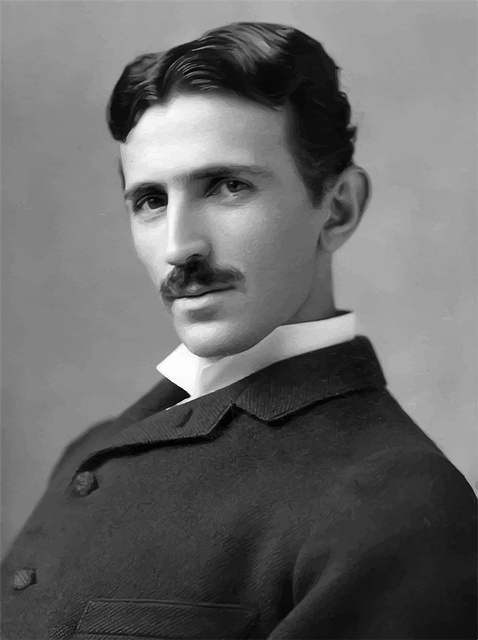Nikola Tesla, born on July 10, 1856, in Smiljan, Croatia, was a visionary inventor and engineer whose work laid the foundation for much of the modern technological world. Tesla was a quintessential Renaissance man, embodying a blend of ingenuity, creativity, and a relentless pursuit of knowledge across various fields.
Tesla’s education in physics and engineering, complemented by his natural talent for mathematics, enabled him to make groundbreaking advancements in numerous areas. His most notable achievement was the development of alternating current (AC) electrical systems, which revolutionized the way electricity was generated and distributed. This innovation not only changed the landscape of electrical engineering but also made long-distance transmission of electricity feasible, leading to widespread electrification.
Beyond his electrical inventions, Tesla’s interests spanned diverse disciplines. He delved into the study of wireless communication, envisioning a world where information could be transmitted without wires—a concept that laid the groundwork for modern wireless technology. Tesla was also fascinated by the potential of renewable energy and explored ways to harness power from the natural world, including solar and geothermal energy.
Tesla’s inventive genius extended to robotics, radar, and even the concept of X-rays, illustrating his ability to foresee future technological advancements. His contributions to science and technology were not confined to practical inventions; he was also a prolific thinker with over 300 patents to his name.
Nikola Tesla, beyond his scientific and engineering prowess, was a visionary with diverse interests and talents that extended into the realms of art and culture. He was known for his deep appreciation of poetry and literature, often quoting the works of Goethe and Shakespeare. Tesla was also a polyglot, fluent in multiple languages including English, Serbian, and French, which allowed him to engage with a wide range of intellectual circles. His creative mind wasn’t confined to technical inventions; he had a keen sense of aesthetics and was fascinated by the beauty of nature and the cosmos. Tesla’s impact reached beyond his groundbreaking contributions to electricity and magnetism, influencing the cultural zeitgeist of his time and leaving a lasting legacy in popular culture, where he is often depicted as the quintessential eccentric genius. His ability to envision a future where technology and humanity coexist harmoniously continues to inspire innovators and artists alike.
Despite facing numerous challenges, including financial difficulties and intense competition, Tesla’s visionary ideas and innovative spirit have left an indelible mark on the world. His interdisciplinary approach and relentless curiosity exemplify the spirit of a Renaissance man, inspiring countless generations of inventors and scientists to push the boundaries of what is possible. Tesla’s legacy continues to shine brightly, reminding us of the power of imagination and the impact of a truly multifaceted genius.

